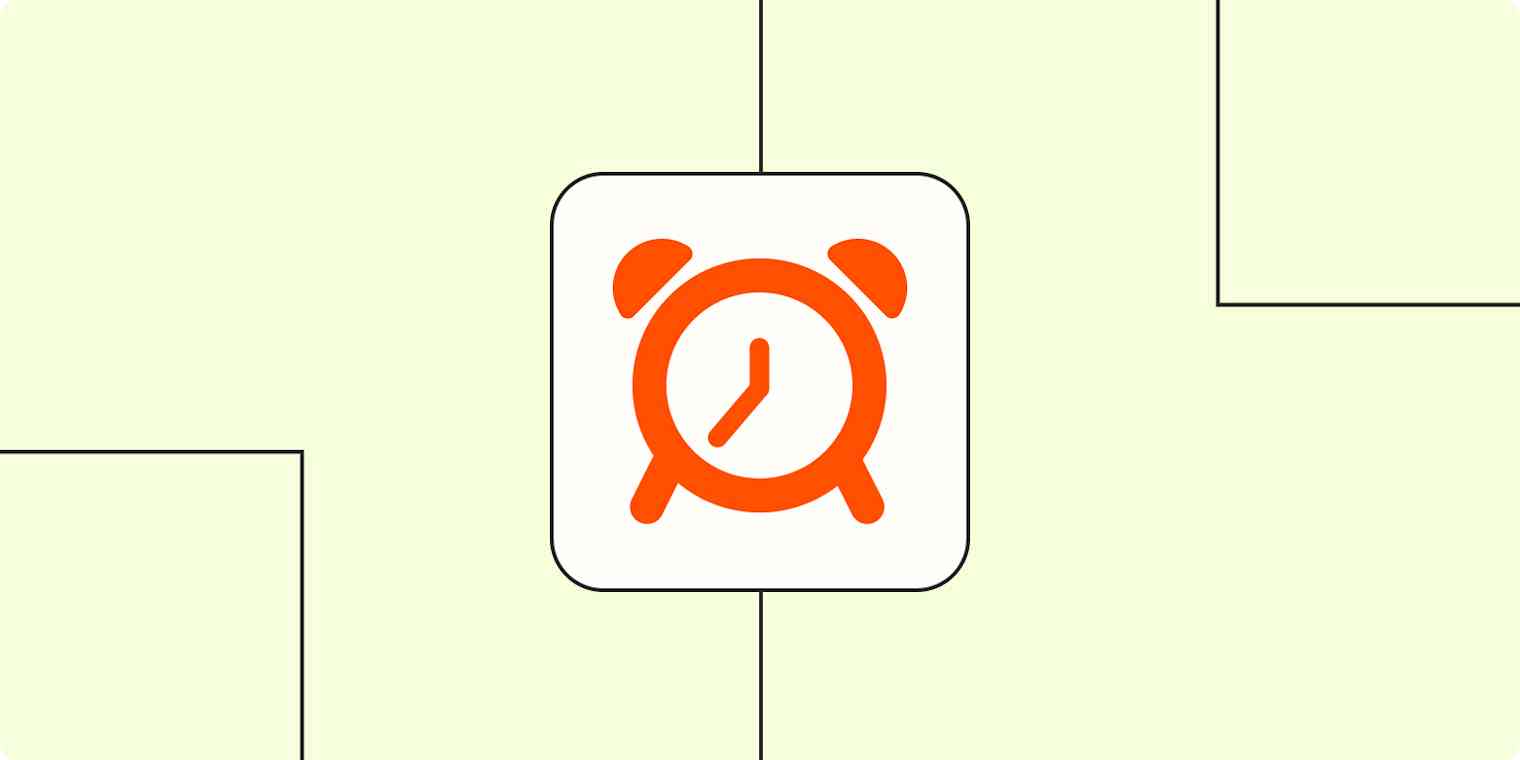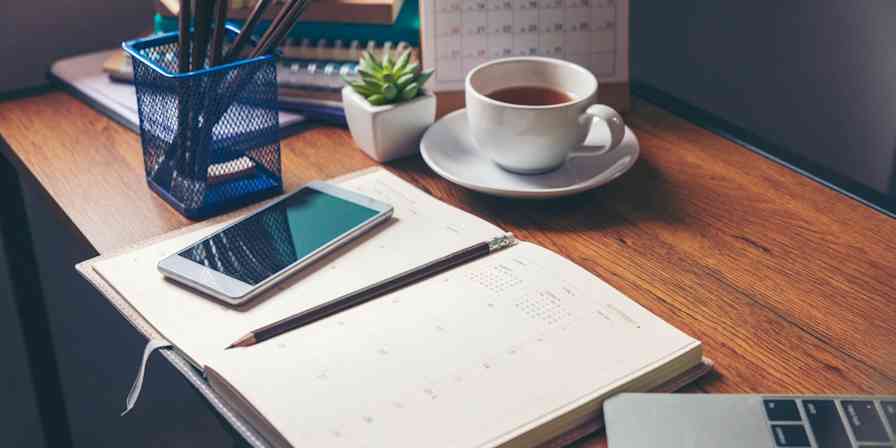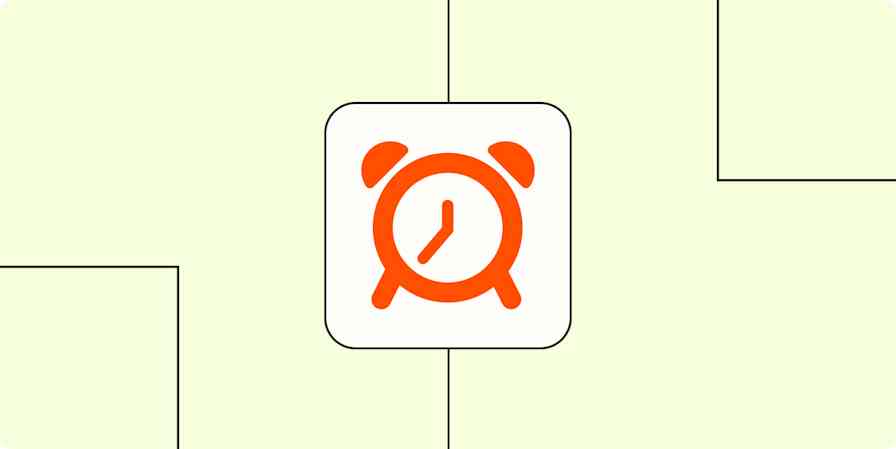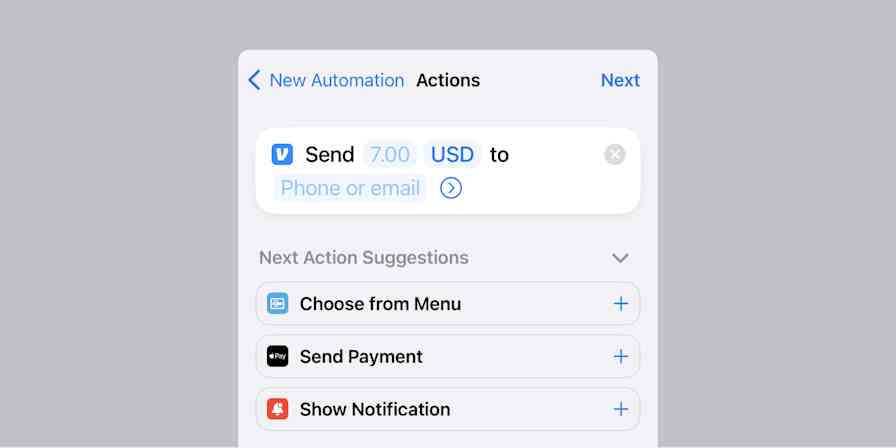The alarm clock has always hated me. I tried blaring chicken sounds, pleasing bird chirps, and even Taylor Swift's classics to get on its good side, but to no avail. I'd snooze and snooze, requesting a few more minutes like a kid before bedtime.
Until September 2022—after which I went alarm-free.
I recognize abandoning alarm clocks is a huge privilege that's not available to everyone—shift workers who need to show up at their office on time, employees with early-morning meetings, and parents who have their own built-in alarms. My intent with this piece is to help you work with your circadian rhythm and lifestyle. The goal is to find a way to listen to your body—whether with an alarm or without one.
How an alarm clock does more harm than good
So why did I decide to abandon my alarm? The short answer: because I could. Being self-employed and childless allowed me to dictate my own schedule and drop any morning obligations. But I'd also done some research and realized I was doing myself a disservice by waking up to the jolt of an alarm clock.
Social jetlag is the inconsistency between your body clock and social obligations. Your body wants to sleep in on a Monday morning (because you got to bed late on Sunday), but the 9 a.m. meeting forces you to do otherwise. It's not just unpleasant but harmful to your health: excessive amounts of social jetlag is linked to obesity, diabetes, and cardiovascular diseases. Study after study has confirmed that alarms may hamper your sleep cycle and wake you up from deep or REM sleep—which results in low mood and lackluster performance.
All the science told me that my relationship with the alarm clock was a toxic one.
My experiment with abandoning the alarm clock
I'm embarrassed to admit how long it took me to stop using an alarm clock. I'd been considering it since September 2021 and finally got the courage to do it a whole year later. My biggest worry? Sleeping till noon and getting no work done.
I'm actually looking forward to this. Gonna try it now. Thanks for the inspiration 💪
— Rochi Zalani (@rochi_zalani) September 23, 2021
Turns out: my anxiety was on point (and so was my fellow freelancer friend, Marijana).
First ~20 days
I dipped my toes into the no-alarm club slowly. I'd turn the alarm off for the days I didn't have much work pending—which were mostly Thursdays and Fridays since I frontload my weeks—and on the weekends.
For the first month, things were erratic. I'd wake up at 11 a.m. some days, 8 a.m. others. It didn't help that I didn't have a fixed sleeping time: I'd go to sleep around midnight on weekdays and 2 a.m. on weekends. The haphazard bedtime significantly affected the time I woke up.
This uncertainty about my day discouraged me, and I wanted to abandon the experiment altogether. But I thought I'd stick it out for another 20 days or so—and that's when the magic happened.
Week 3 – Week 8
Two months in, I had set a solid footing. I started sticking to a two-hour fixed bedtime window, and the wake-up times got predictable. I noticed on most days, I need around 8.5 hours of sleep to function at my best. At this stage, I also started noticing benefits like a happier mood, better focus, and increased energy. I was stoked…until I hit a slight bump again.
Week 9 – Week 12
Toward the end of 2022, I noticed my sleep schedule getting rocky again. I was a bit off my bedtime range for a few days of the week, but the effect was spread out even on the days I went to bed on time. Some days, I woke up at my usual 8–9 a.m., but there were days I wouldn't open my eyes before 10:30 a.m.
I traced it back to a change in my exercise routine and increased stress levels. I started doing intensive HIIT workouts in November, along with planning my brother's wedding. On the workout days, I'd hit the hay for longer (at least nine hours). On the days when I had a lot on my plate (and my mind), I'd wake up earlier than expected.
Either way, whenever I woke up, I was fresh and productive. I'll call that a win.
How to prepare for throwing away the alarm clock
If you're thinking of experimenting with going alarm-free, here are the things I learned from the four-month experiment.
1. Shed the late-riser guilt
I'll admit it: I wanted an enviable morning routine. Look at what my alarm clock used to look like before this experiment:
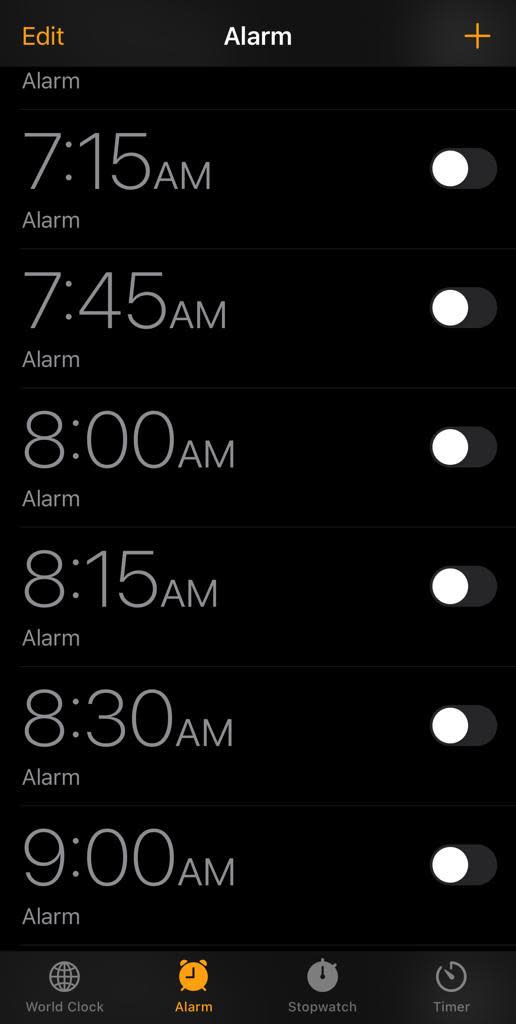
My goal was to enter the exclusive 5 a.m. club—exercise, meditate, and journal—all before the clock hits 9. So when the first few weeks I was waking up past 10 a.m., the guilt of letting my precious morning slip by was massive. But I soon realized that the most significant predictor of my productivity wasn't what time I woke up but whether or not I got enough sleep.
All the sleep science supports this sentiment. Ditch your "best-self morning persona" because it isn't doing you any good. Focus on listening to your internal body clock rather than generalized productivity culture mantras.
2. Create a sleep and wake-up routine
I was annoyed to hear yet another cry for limiting screen time before bed when I was trying to make my sleep schedule predictable. But research supports the thesis, so what can you do? Swapping my Netflix time for a book or a chat session with a friend did help me get to sleep faster.
For the days I'm unable to control myself, I wear blue-light blocker glasses and turn on the night shift on my iPhone to minimize the harmful screen effects.
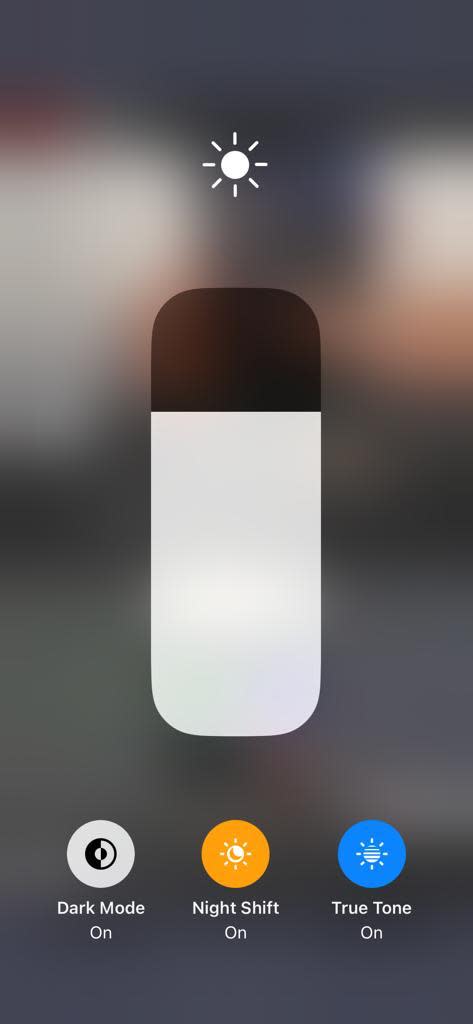
Other things that helped:
Keeping the blinds slightly open. Natural sunlight allowed my body to wake up organically and peacefully.
Having something to look forward to in the morning. Knowing I had an amazing breakfast on the docket helped me leave the cozy nestle of my blanket.
3. Be prepared for tradeoffs
Initially, your alarm-free journey could be a zigzag (like mine). So be ready for the tradeoffs you might have to make to adjust. For me, starting work late meant I was often working until dinner and squeezing exercise in the evenings instead of the mornings.
It seemed worth it because of the rise in energy levels, but still, some weeks were wonky. Flexibility in your calendar is a prerequisite for the initial no-alarm days.
4. Give it time
What your alarm-free journey needs most? Time. Have patience and give yourself compassion at the beginning when you're still adapting to the absence of the alarm clock. There are many hacks to maximize your productivity, but listening to your body's needs might be the best one.
Going alarmless full-time
I don't see myself going back to using alarm clocks to wake up ever again, unless I have an early meeting, a flight to catch, or a hike to climb—in that case, I'll turn on all fifteen alarms to fulfill my morning commitments (like a normal person).
Sure, 5 a.m. deep work rituals have their charm. But neglecting your sleep to be more productive is one of the least productive things you can do.
